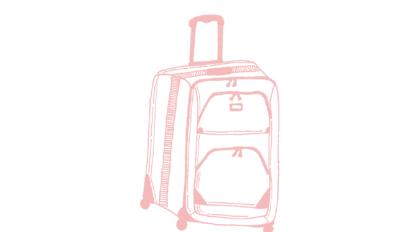Second Thoughts About Sleepaway Camp?
How to Warm Your Child’s Cold Feet
Tina Payne Bryson, Ph.D.
Last month your child was completely gung-ho about attending sleepaway camp. But now that the weather’s turning warmer, that enthusiasm might be turning to apprehension. Doubts, fears, anxieties, and even dread are normal for kids who are going to be away from their parents for a period of time, especially if it’s their first time, and especially if they are introverts.
We’ve got checklists for all the gear our children need at camp, but it’s also helpful to compile a checklist for preparing them emotionally if they are experiencing some cold feet or worries. It might look something like this.
An Emotion-Prep Checklist for Sleepaway Camp:
- Talk directly about feelings. It’s really unhelpful for parents to dismiss a child’s feelings and say, “You’ll be fine. You’ll love it! Don’t worry.” (Has someone telling you “Don’t worry” made you say “Oh, OK. I hadn’t thought of that.” Not helpful, right?) Instead, if you sense your child is having some worries and he’s not bringing them up, you can begin the conversation by saying something like, “Some kids feel nervous about camp as it gets closer. How are you feeling about it?” And whether or not your child is initiating the discussion himself, it’s important to really listen and validate those feelings instead of trying to talk him out of them or dismiss them.
- Problem-Solve. Find out what your child’s specific worries are, and then collaboratively problem-solve with her. Most kids worry about being homesick, but it might surprise you what they are concerned about. Kids worry whether they’ll like the food, that they won’t be good at the activities, that they’ll wet the bed, and even that their shoes will get wet. Whatever the worries, it can be helpful to brainstorm together and talk about the “what ifs,” and what she can do in the circumstances she’s thinking about.
- Normalize the feelings. Just knowing that other kids feel that way, too, and that it’s normal to feel worried about doing something that’s different, can be quite helpful. Talk about a time you stepped outside your comfort zone and how you felt apprehension at first, how you handled your feelings, and how the experience ended up being great. (Make sure to pick a resilient story—no stories about how it ended up being even worse than you could’ve imagined.)
- Give kids a strategy or two to help them calm their worries. One thing you can begin now that will give them tools they can use while they’re at camp is something I use with anxious kids in my private practice. I give them an assignment that each night, once they are peaceful and relaxed and ready to fall asleep, they should place their hand on their chest (pledge-of-allegiance style). Only when they’re feeling calm and peaceful. After doing this every night for a few weeks, the brain makes a connection between the sensation of the hand on the chest and a feeling of calm relaxation. Then, when the child is feeling worried or upset, he can easily place his hand on his chest wherever he is, and his body will begin to relax and his mind will begin to feel calm.Another strategy is to teach him that while his feelings might feel really wild and stirred up, if he pauses to take a few deep breaths, the worries will settle, allowing him to see clearly again. The best thing I’ve found to teach this is the “glitter ball” analogy that Susan Kaiser-Greenland created. You can teach this to your kids by having them watch this super-short video with you. Click here to watch
If you do these two things in the weeks before your child leaves for camp, you can build some skills and empower him with some tools he can pull out when he needs them. This allows him to avoid becoming a victim to his feelings, but to be able to use his mind to change how he feels. (You might try some of these tools too, if you are feeling worried about sending your child off!)
This moment is a great opportunity to teach kids that while we should pay attention to our feelings, our feelings shouldn’t rule our worlds. If you talk, listen, normalize, and strategize, you will be preparing your children to go to camp with the best chance of overcoming their fears and learning something really important about themselves—that they are braver and stronger than they think. You’ll be doing much more than just prepping them for camp, you’ll be prepping them for life.
This article first appeared at mom.me please click here.
For further reading and parenting advice, check out www.TinaBryson.com.


